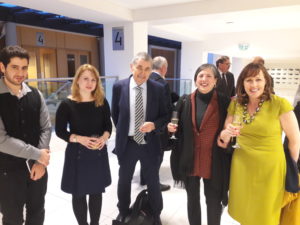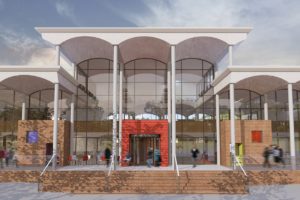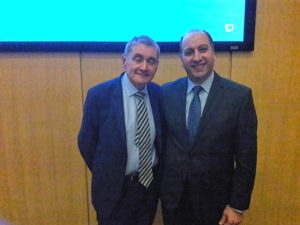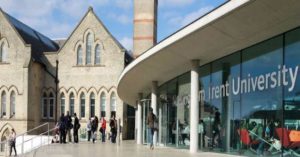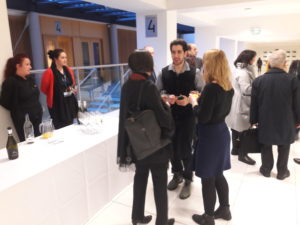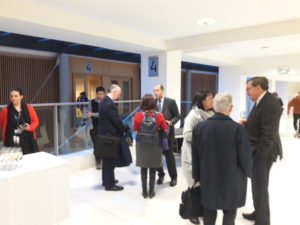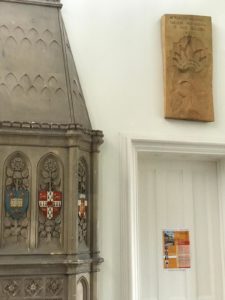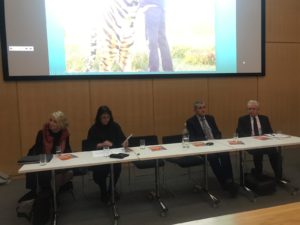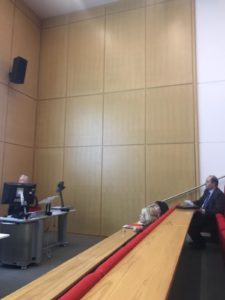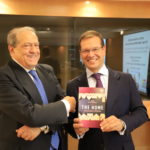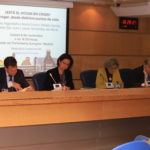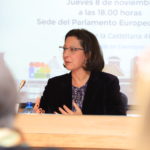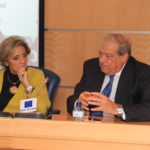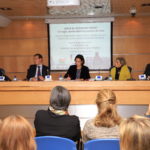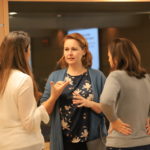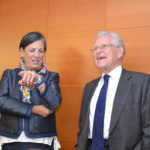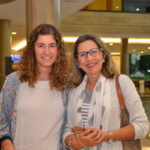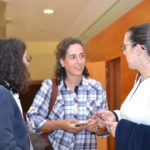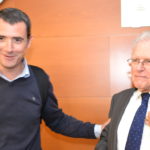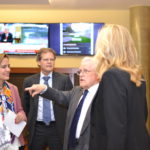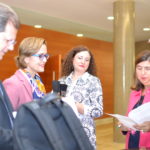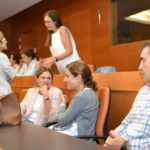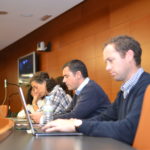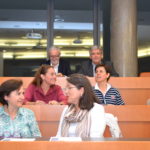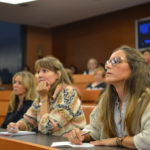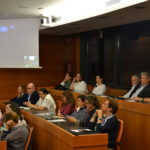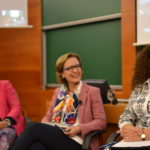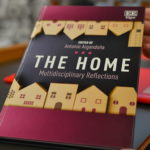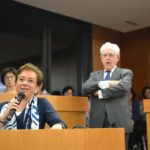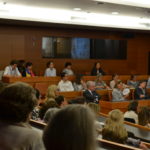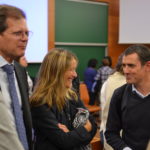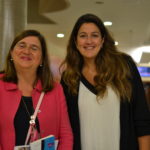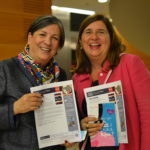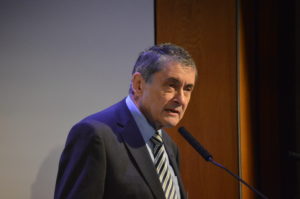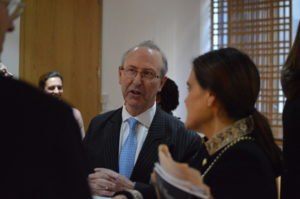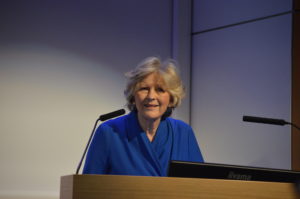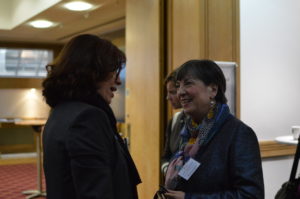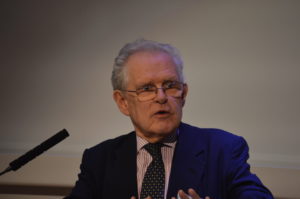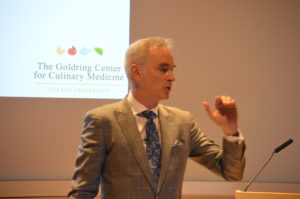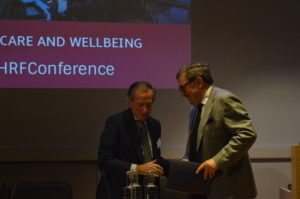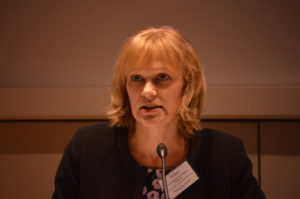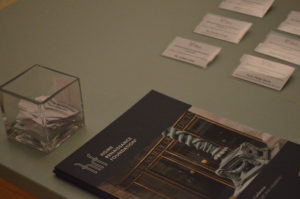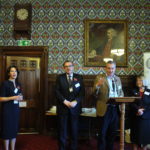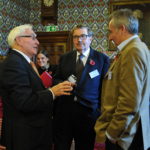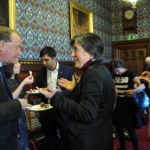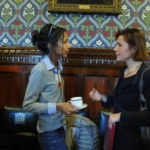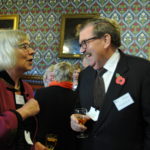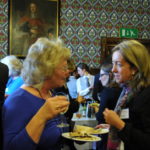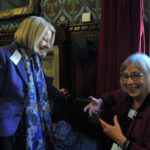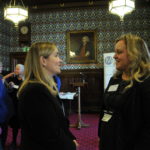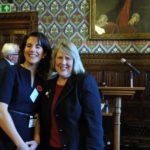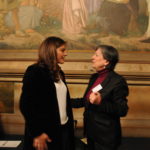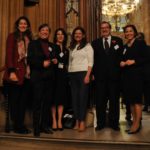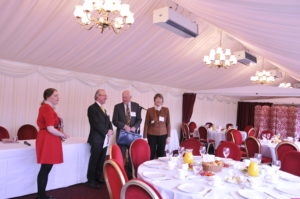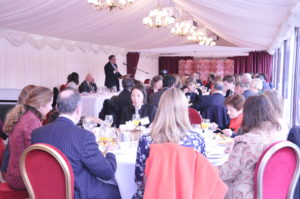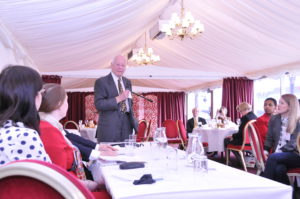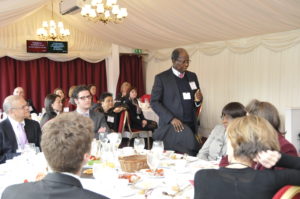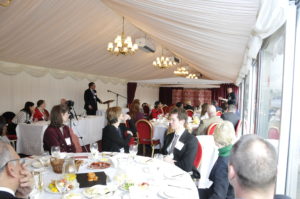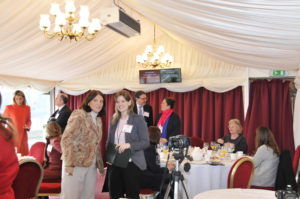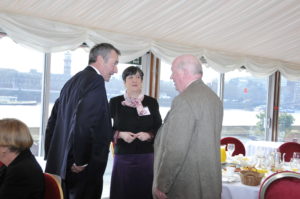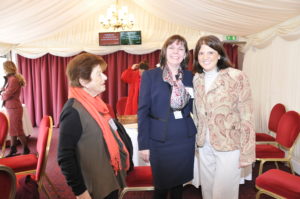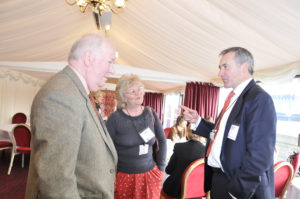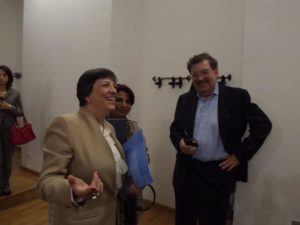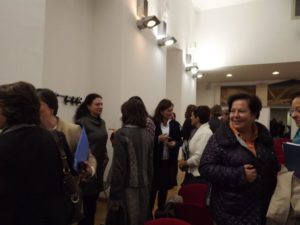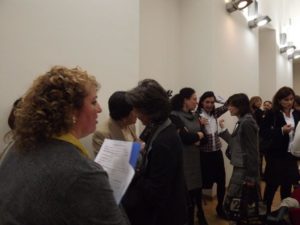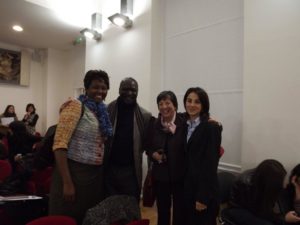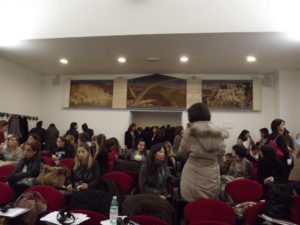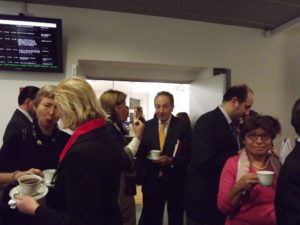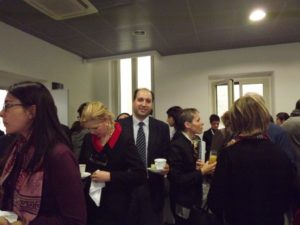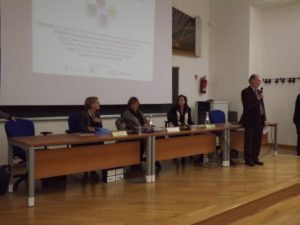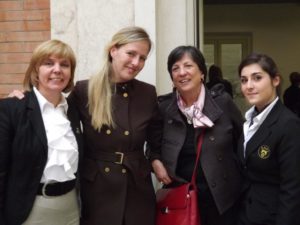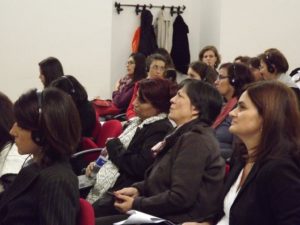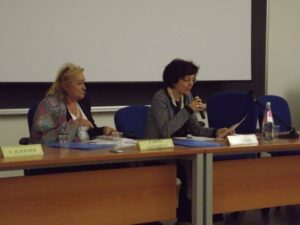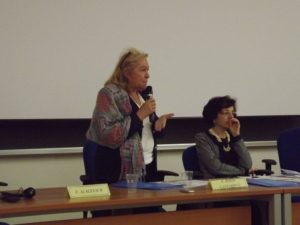Press Release: The Home in the Digital Age | February 2019
News Digest from HRF/STI Experts’ Meeting: The Home in the Digital Age
25- 26 February 2019 The Royal Society of Medicine, London
Vision and Background
We live in in a world where technological advance and above all the astonishing pace of change is challenging many of the values and modus operandi we have long taken for granted. Much of this change coupled with the increased transparency which comes with it is undoubtedly for the good of society and especially disadvantaged minorities but equally there is no doubt that some of its use or abuse can be threatening.
Within this political and societal maelstrom the aim of Home Renaissance Foundation is to raise awareness of the home as a vital contributor to individual and social wellbeing. Our work is through research and academic meetings on current relevant trends and challenges. There can be few trends more relevant and challenging than the one identified as the focus of this current Experts’ Meeting: The Home in the Digital Age. What are the contributions – and what are the dangers – of Artificial Intelligence in our homes?
The meeting brings together world-class expertise from fields of computational logic, digital economics, sociology, philosophy of science and architecture. The discussion promises to bring light to an area often ignored by academics and the media: the Home Front.
Much attention has been given to the effects of AI on individuals and on the workplace. Far less has been written or discussed on the implications on the new technologies on the life and work of the home. The home though is truly the front line for many of these developments. HRF has been ground-breaking in raising awareness of this. The home, common to us all, is often lost in plain sight. By channeling attention to the specific context of the home HRF intends to sharpen the focus of the AI debate.
Relevant and resonant questions for the meeting and for society include:
- How are these new technologies changing the perception of our bodies, our sense of belonging, and social relationships?
- How can we make best use of the opportunities offered by AI and what should we protect in the context of the home and household?
- What might be the specific benefits and the specific costs of how the new technologies can enhance children’s growth, their social integration, intergenerational relationships in the domestic environment, and the care of the elderly?
It was fully expected and encouraged that within the presentations other areas of discussion and significance would be raised. The following news digest follows the key points of each presentation and the final section offers a summary and some pointers to the next stage.
Digest
Keynote Monday 25th February: Background to HRF
Professor Sophia Aguirre, Professor of Economics in the School of Business and Economics, Catholic University of America, Washington DC, USA, outlined the background to the research element of Home Renaissance Foundation: to give status and increased understanding of the work and life of the home and to provide an evidence base to inform and influence policy and decision making at a local, national and global level.
Session 1 AI, Automation and the Home.
Economic historian Dr Stephen Davies, Institute of Economic Affairs (IEA), London, UK, gave a historical perspective on the anxieties associated with the new developments. Society has faced great technological shifts in the past and has found ways of adapting and making the most of them. The relevant strand from this presentation was that all discussion of the effects of AI on the labour market has focused on the workplace rather than the home context. “The home is not a central or explicit concern or topic of debate, the strengthening of the home and households and families is not an explicit goal of public policy. If it were the discussion of automation and its possible effects would have quite a different content and flavour.” This point was reinforced by Dr Davies pointing out that only since the middle of the 20th Century have individuals been seen as the economic unit rather than the family or household. Looking forward he sees a return to home working with an emphasis on those things that cannot be made by machines, alongside the prediction that 80% of “white-collar” jobs including GPs and lawyers will be replaced by AI systems. The new era of the artisan will have many implications for the domestic sphere. Will there be a return to the pre-industrial model of home as undifferentiated economic and domestic value?
Session 2 The impact of AI on Employment.
Economist Dr Mia Mikic, United Nations Economic and Social Commission for Asia and the Pacific, Bangkok, Thailand, picked up on the strand introduced by Dr Davies that the economic impact of AI is broadly being seen as an impact on employment. In considering just 15 major developed and emerging economies the World Economic Forum predicts that frontier technological trends will lead to a net loss of over five million jobs by 2020. Dr Mikic developed a point of Dr Davies that even though many of these workers will be redeployed, the individual, familial and social upheaval of relocation, retraining and changed income levels is not factored into global forecasts and spreadsheets. Dr Mikic was keen to point out that although there are social benefits to much of the “almost intelligent” technology taking over many of the more dangerous tasks including bomb disposal, at the domestic level the benefits are harder to call. Key societal responses to the new technologies should be improving access to education in these new life-skills and ensuring inclusivity especially by encouraging women to play a full entrepreneurial role in the digital economy.
Dr Joy Malala, Strathmore University, Nairobi, Kenya, responded to this by drawing attention to the experience of Kenyans who have been enfranchised by the new “hand-held” technology that does not depend on a national infrastructure. The mobile revolution has put financial planning and educational opportunities literally into the hands of Kenyan householders. “99% of the population does not have a bank account, but they do have a phone.”
Session 3 Digital Home: The Missing Element for a People-centered Digital Future.
Technology pioneer Mei Lin Fung, People-Centered Internet, World Economic Forum, shared statistics on the scale of our digital progress (e-addresses being contained in something the size of a beachball to now, exponentially, something the size of our sun) and placed them firmly in the context of their implications for our shared future: “We are at the 50/50 moment when half the world is connected to the internet. What happens when the other half come on line is in our hands. We have the opportunity to prioritize home and family above work – and still live well.” Mei- Lin drew parallels with the pioneer families in the early days of the American West taking wagons across unknown and dangerous land with the journey we are on as a society on the digital frontier. She urged us to remember that on those wagons, along with food and arms, they also took pianos. We need to have on board the things that build good homes and lives. “Understanding what the Digital Home could be- a safe, welcoming and happy place where people together expand their social and economic activities…is an important endeavour.” “The home is the custodian of what is shared and what is private. The node that connects and protects wider communities.” Mei Lin concluded with a call for a “Renaissance in research about the home for humanity.” We need a seat at the table and a piano on the wagon.
Deborah Gale, Global Institute of Experienced Entrepreneurship, co-author of the presentation added her plea for active participation and leadership in the regulation and planning for the digital future. This was echoed by Lord Best responding to the question “Is the internet too big and too disparate for regulation?” and calling for urgent engagement in providing good regulatory guidance and safeguards. A point developed by Professor Sonia Livingstone in her keynote presentation. (See below.)
Session 4 Contested Homes in the Age of the Cloud.
Professor Gamal Abdelmonem, Chair in Architecture and the Director of the Centre for Architecture, Urbanism and Global Heritage, Nottingham Trent University, UK, addressed one of the key questions of the meeting: how are these new technologies changing the perception of our bodies, our sense of belonging, and social relationships. Two fundamental changes are affecting the life of the home, 1) the increasing number of older people as percentage of population in the UK and Europe, 2) the increasing encroachment of technologies in the way homes operate on a daily basis. Smart homes for the elderly need to address the actual concerns of older people not only their carers. Issues of safety and security are important, but so, argues Professor Abdelmonem, are fears of social isolation and lack of privacy. He also noted the changes to private and public spaces and contexts; these shift relative to the size and activity of the home. Private/personal space can now be achieved by plugging in to the digital world, creating isolation in formerly shared space. The challenge is for “homes of the 21st Century where work, care and emotional support are contesting the very nature of socio-spatial patterns of the domestic space….To be sustainable and central to family living.” Home planning for all generations needs to recognize the shifting demographic and private/public domains and to “Revisit [the home’s] roles as private spaces, and integrate technologies that are family friendly with clear ethical and moral principles.” Human values must underlie digital development.
Session 5 Homes as Human Robot Ecologies:An Epistemological Inquiry on the “Domestication” of Robots
Professor Luisa Damiano, Logic and Philosophy of Science, University of Messina, Italy, explored how the notion of “domestic robots” has moved from science fiction to frontier research. As with Professor Abdelmonem, Professor Damiano’s focus was on how human needs and behaviours need to be integrated with these developments – not teaching humans how to be with robots but making robots that genuinely benefit humans in domestic contexts. The so-called “peer-to-peer” interaction skills of robots in a wide range of home-based care and work tasks from cleaning to baby-sitting “promises a considerable transformation of humans’ domesticity, and more in general, way of living.” Like earlier speakers Professor Damiano advocated the urgency of a specific ethical reflection on these developments. “Instead of prioritizing the inclusion of robots into domestic environments by enhancing their networks of [robot-robot] relations, to favour the design of robots as “social connectors”: prioritizing the goal of empowering human-human relations inside and outside domestic environments.”
Dr Ioana Ocnarescu, Design Researcher at Strate School of Design, Paris, France, responded by perfectly illustrating Dr Damiano’s argument with examples from the robot design perspective. Designers are most often approached once the robot has been created and are asked to optimize its use. This, Dr Ocnarescu argues, is the wrong way round. Designers are best-placed to be a part of the process from the beginning to ensure that the robot fits human needs rather than humans learning to fit in with the robot.(Video link to be found at:https://vimeo.com/128873380)
Keynote Tuesday 26th February: Digital Families: Grand Hopes, Growing Fears, Everyday Struggles.
Professor Sonia Livingstone OBE FBA, Professor of Social Psychology in the Department of Media and Communications London School of Economics (LSE), UK, presented relevant aspects of her work with Alicia Blum-Ross on Parenting for a Digital Future. This directly addressed the key question: What might be the specific benefits and the specific costs of how the new technologies can enhance children’s growth, their social integration, intergenerational relationships in the domestic environment? Professor Livingstone established that 5 in 6 of all parents use digital technologies for parenting. She outlined some of the mixed messages both parents and children are receiving about the new technologies. On one hand they are encouraged to prepare for a digital future, on the other hand they are bombarded with scare stories about excessive screen time and internet dangers. Future-proofing or brain-washing? Negotiating a path through this new terrain causes tension within the home and relationships. Parents feel disconnected from their children and each other and it is hard for them to gain advice in managing these new conflicts. Professor Livingstone’s own research suggests that many of the fears about screen time and access are not borne out in evidence. Gaining digital confidence, learning about coding from an early age should equip children for the new world. How far though does this increase the disconnect between parents and their children in the shared space of the home? Bearing in mind some social class distinctions found in the research, what are the shared values which we can encourage for all families, not just “the Geeks”? What does digital citizenship look like in the domestic context? What does need to be addressed is the age at which children become digitally active. This led to a return to the discussion concerning regulation and safe-guarding. It is clear that governments find themselves on the back foot in attempting to regulate something which is moving so fast and will only move faster in the future. It is also clear that any regulation or education plan needs to consider the whole family dynamic and needs.
Session 6: AI Empowered Technology in the Home.
Professor Francesca Toni, Professor in Computational Logic in the Department of Computing, Imperial College London, UK, and the founder and leader of the CLArg (Computational Logic and Argumentation) research group, picked up on a theme of the meeting, that these technologies although evolving fast still have a long way to go. Professor Toni’s perspective suggests that there is still time and opportunity to make these new technologies work for and not against human social needs. The commercial developments that we see in place now aim to identify and optimize human activities. Currently “Connected Homes” are seen as places where control of energy consumption and security are managed either remotely or centrally by householders. There is not yet much available that engages directly with social connection facilitated by AI within the home between family/household members. This is an area where conversation between those working in the field of AI, scientific and commercial, and those concerned with policy making is vital.
Summary
How are these new technologies changing the perception of our bodies, our sense of belonging, and social relationships?
Addressed by Professors Gamal Abdelmonem, Luisa Damiano, Sonia Livingstone, Francesca Toni and by Mei Lin Fung, and by respondents, Homayoun Alemi FRIBA, Dr Ioana Ocnarescu and Professor Matilde Santos, Professor in System Engineering and Automatic Control, University Complutense of Madrid, Spain.
Key strands
- Many of these technologies are still at an early stage and evidence is still unclear as to the direct effect on the perception of our bodies, our sense of belonging, and social relationships.
- Evidence we do have shows that the line between the private and the public is shifting and affecting the groups we feel we belong to. Questions concerning individual privacy are dominating the discussion of digital access, while more important shared concerns are less well-represented.
- There is intergenerational tension in social relationships where use/overuse/inappropriate use of digital technology is perceived.
How can we make best use of the opportunities offered by AI and what should we protect in the context of the home and household?
Addressed by all participants already cited and including respondent Dr Gloria Pasadilla, Partner and Business Director of Leadership Design Pte, Ltd, Singapore.
Key strands
- No one is currently raising the home context in the forums of AI and digital technologies. There needs to be “space at the table” for those concerned with these issues to engage with those making the decisions which reach into our homes.
- The speed of development requires an urgent engagement with the ethical and social implications of the digital frontier and the prioritizing of human-human connection over human-robot connection.
- Regulation, “trust-gates” and “gate-keepers” and firm ethical guidelines need to be integrated, and develop alongside with all technologies affecting the domestic context.
- More research needed to see how the next generation of AI will impact on the home.
What might be the specific benefits and the specific costs of how the new technologies can enhance children’s growth, their social integration, intergenerational relationships in the domestic environment, and the care of the elderly?
Addressed by Professors Gamal Abdelmonem, Luisa Damiano, Sonia Livingstone, Francesca Toni and by Mei Lin Fung, and by respondents, Homayoun Alemi FRIBA, Dr Ioana Ocnarescu and Professor Matilde Santos, Professor in System Engineering and Automatic Control, University Complutense of Madrid, Spain.
Key Strands
- There are clear benefits to children’s individual access to education and employment from digital technology. There is an impact on relationships within the home but these often arise from intergenerational tensions around amount of time children spend on screen and parental lack of knowledge/confidence on how to manage this.
- There are clear benefits to the elderly from technologies designed to improve their security, safety, health and independence at home. There must be an awareness that many of these technologies are designed for the benefit of carers/relatives rather than the older person. Aim to work with rather than for the elderly to develop next stage of “care” technology.
- There is no indication of the intergenerational benefits of AI being addressed or developed as key requirements or needs. That is in terms of communication, mutual nurturing, or intergenerational living.
Indicators for Future Actions/Engagement
- No one is currently raising the home context in the forums of AI and digital technologies. There needs to be a “seat at the table” for those concerned with these issues to engage with those making the decisions which reach into our homes.
- Construction of a framework and content of support and guidelines for parents and carers, and access to this, needs to be developed in the context of all who share the home.
- More research is needed on the costs/benefits of the new technologies to the home.
- There is no indication of the intergenerational benefits of AI being addressed or developed as key requirements or needs. That is in terms of communication, mutual nurturing, or intergenerational living.
- There was little mention of any specifics in terms of ethical principles or guidelines to inform the above actions and engagements. This is clearly an area for further and detailed discussion.
